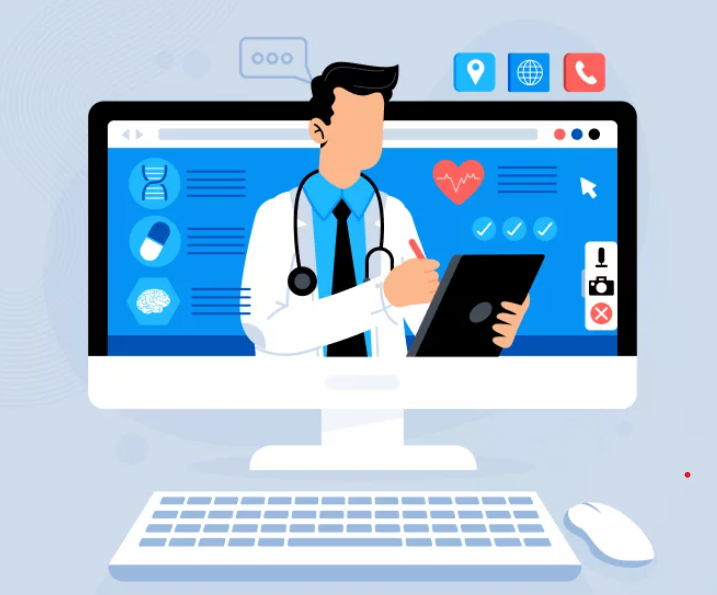Keeping track of your health is more important than ever, and staying proactive can make all the difference. 10 Essential Health Screenings for 2024: Stay Ahead of Potential Issues aims to guide you through the most crucial medical tests you should consider this year. Regular screenings can help detect potential problems early, ensuring you receive timely treatment and maintain your well-being.
Why Health Screenings Are Important
Health screenings are vital for detecting diseases and conditions early, often before symptoms appear. Early detection can lead to more effective treatments and better outcomes. As we move through 2024, it’s essential to know which screenings can help you stay ahead of potential health issues.
10 Essential Health Screenings for 2024: Stay Ahead of Potential Issues
1. Blood Pressure Screening
High blood pressure, or hypertension, often goes unnoticed until it causes significant health issues. Regular blood pressure screenings are crucial, as hypertension can lead to heart disease, stroke, and kidney damage.
Frequency and Age Considerations
Adults should check their blood pressure at least once every two years. However, if you have risk factors like obesity, smoking, or a family history of hypertension, annual checks are advisable.
2. Cholesterol Screening
Cholesterol levels can reveal a lot about your heart health. High levels of bad cholesterol (LDL) can increase your risk of heart disease and stroke.
Understanding Your Numbers
It’s recommended to have your cholesterol checked every four to six years. If you have heart disease, diabetes, or a family history of high cholesterol, more frequent testing might be necessary.
3. Diabetes Screening
Diabetes is a growing concern worldwide. Early detection through screening can prevent complications such as heart disease, kidney failure, and nerve damage.
Screening Methods
A fasting blood sugar test or an HbA1c test can help diagnose diabetes. Adults over 45 should be tested every three years, but those with risk factors may need more frequent screening.
4. Cancer Screenings
Various cancer screenings can help detect cancers early when they are most treatable. Common screenings include mammograms for breast cancer, Pap smears for cervical cancer, and colonoscopies for colorectal cancer.
Specific Recommendations
- Mammograms: Women aged 50-74 should have a mammogram every two years.
- Pap Smears: Women aged 21-65 should have a Pap smear every three years.
- Colonoscopies: Adults aged 50-75 should have a colonoscopy every ten years.
5. Osteoporosis Screening
Osteoporosis causes bones to become weak and brittle, increasing fracture risk. A bone density test can help diagnose osteoporosis before significant damage occurs.
Who Should Be Screened
Women over 65 and men over 70 should have a bone density test. Younger individuals with risk factors like long-term steroid use or a family history of osteoporosis should also consider screening.
6. Eye Exam
Regular eye exams can detect vision problems, glaucoma, macular degeneration, and other eye diseases early.
H3: Frequency and Risk Factors
Adults should have a comprehensive eye exam every two years. Those with diabetes, high blood pressure, or a family history of eye disease may need more frequent exams.
7. Hearing Test
Hearing loss can significantly impact your quality of life. Regular hearing tests can detect problems early, allowing for timely interventions such as hearing aids or other treatments.
When to Get Tested
Adults should have a baseline hearing test at age 50 and then every three years. Those exposed to loud noises regularly or with a family history of hearing loss should be tested more frequently.
8. Skin Cancer Screening
Skin cancer is the most common cancer in the United States. Regular skin checks can help detect early signs of skin cancer, which is crucial for effective treatment.
Self-Exams and Professional Checks
Perform monthly self-exams to check for new or changing moles. See a dermatologist annually, especially if you have a history of skin cancer or significant sun exposure.
9. Dental Exam
Oral health is closely linked to overall health. Regular dental exams can detect early signs of tooth decay, gum disease, and oral cancer.
Maintaining Oral Health
Visit your dentist every six months for a cleaning and check-up. Brush and floss daily to maintain good oral hygiene.
10. Mental Health Screening
Mental health is just as important as physical health. Screening for depression, anxiety, and other mental health conditions can help you get the support you need.
Recognizing the Signs
If you experience prolonged sadness, anxiety, or other mental health issues, speak to a healthcare provider. Regular mental health check-ins can ensure you receive appropriate care.
Conclusion
Staying proactive about your health in 2024 means keeping up with essential screenings. 10 Essential Health Screenings for 2024: Stay Ahead of Potential Issues provides a roadmap to maintaining your well-being. Early detection through regular screenings can lead to better health outcomes and peace of mind.
FAQ
Q: How often should I get these health screenings?
A: The frequency of health screenings varies depending on the test and individual risk factors. Generally, annual or biennial screenings are recommended, but consult your healthcare provider for personalized advice.
Q: Are these screenings covered by insurance?
A: Many health screenings are covered by insurance, especially under preventive care provisions. Check with your insurance provider to understand your coverage.
Q: What should I do if a screening detects an issue?
A: If a screening detects a potential health issue, follow up with your healthcare provider for further testing and treatment. Early intervention can significantly improve outcomes.
Q: Can lifestyle changes reduce the need for frequent screenings?
A: Healthy lifestyle changes, such as a balanced diet, regular exercise, and avoiding smoking, can improve your overall health. However, regular screenings are still crucial for early detection of potential issues.
Staying informed and proactive about your health can help you enjoy a longer, healthier life. Make these screenings a priority in 2024 and beyond.
